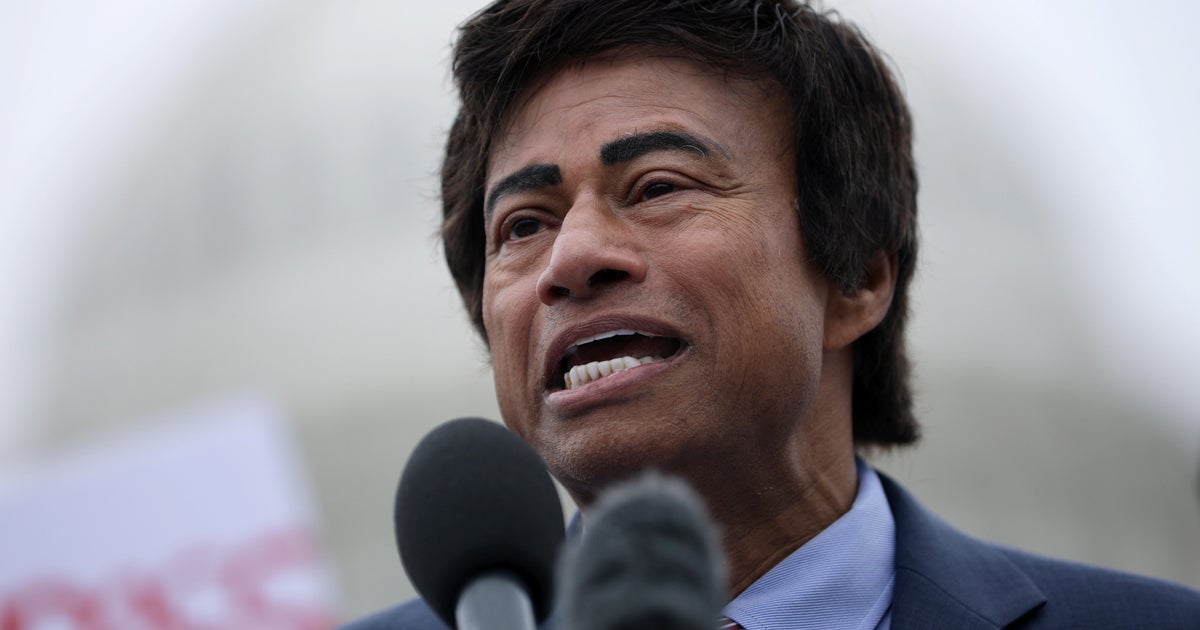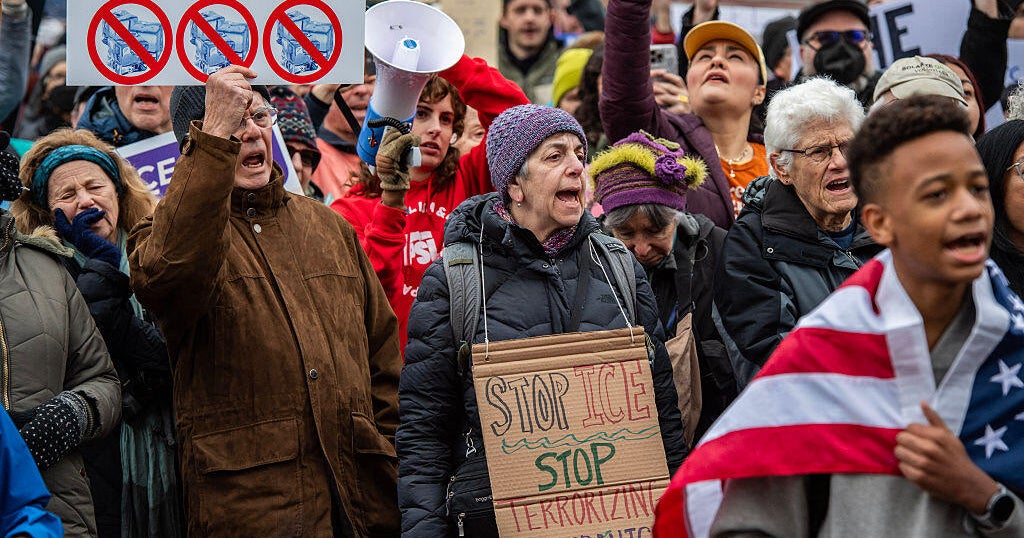What is DHS' Disinformation Governance Board and why is everyone so mad about it?
The Department of Homeland Security's announcement of a "Disinformation Governance Board" to standardize the treatment of disinformation by the agencies it oversees has been met with an overwhelmingly negative response since it was first unveiled in April.
"It's an awful idea, and you ought to disband it," Sen. Mitt Romney, Republican of Utah, told Homeland Security Secretary Alejandro Mayorkas at a Senate hearing on Wednesday.
The new board is intended to standardize the department's efforts to respond to disinformation that could be connected with violent threats to the U.S. So, if an agency under DHS — like Federal Emergency Management Agency (FEMA), U.S. Customs and Border Protection (CBP) or Cybersecurity and Information Security Agency (CISA) — identifies disinformation under its purview, it's the new disinformation board that would come up with the best practices for any DHS agency handling the disinformation.
But DHS has yet to release a charter for the board, and there's still some confusion about the parameters for the group. Officials released a fact sheet, Monday, which promises to "release comprehensive quarterly reports about the working group's activities to Congress, including its oversight committees."
"We don't have definitions of what [the Disinformation Governance Board] is. We don't have boundaries on what it does," Senator James Lankford, Republican of Oklahoma, complained to Mayorkas at the same hearing. "Why should we not have suspicions on this?"
Mayorkas conceded that the rollout of the board has been "suboptimal," but he's defending its mission to provide guardrails and write standards to guide DHS' work to address disinformation within agencies it oversees. In addition to FEMA, CBP and CISA, that includes the Science and Technology Directorate (S & T) and the Office of Intelligence and Analysis (I & A).
Even Democratic lawmakers were skeptical. "There has been a lot of misinformation about your department's work to combat misinformation," said Senator Chris Murphy, chairman of the Senate Appropriations Committee's Homeland Security panel, told Mayorkas. The Connecticut lawmaker agreed it's important to protect the homeland from dangerous propaganda, but added, "You should probably set the record straight about what the goals of your efforts in this area are."
Here's what we know about DHS' Disinformation Governance Board:
What is the Disinformation Governance Board?
The board is tasked with standardizing and streamlining DHS' efforts to respond to disinformation that could be connected with violent threats to the U.S. homeland.
Disinformation is defined as "false information that is deliberately spread with the intent to deceive or mislead."
Previously, efforts to curb disinformation were carried out independently by agencies and offices operating under DHS' purview.
For instance, according to DHS, some of those projects include CISA's accounting of Russian cyber attacks and election interference, CBP's efforts to undermine false narratives peddled by human traffickers operating near the U.S.-Mexico border, DHS' guidance to the U.S. telecom industry to debunk false claims suggesting 5G cell towers spread COVID-19, and FEMA's fraud alerts, warning of criminals who take advantage of disaster survivors in the wake of super storms.
Will the board act as a censor?
"This is not the truth police," Mayorkas declared to the Senate panel, Wednesday, responding to accusations of censorship. "Our work in addressing disinformation that threatens the security of the homeland has been going on for almost 10 years. I asked the question – and we asked the question within the [Department of Homeland Security] – what efforts do we have underway? What policies, procedures and standards of conduct do we have in place to ensure that that vitally important homeland security work… does not infringe on fundamental rights?"
Mayorkas has repeatedly stated that the board will not censor and will not have "operational authority."
Who's on the board?
A mix of career and political appointees will staff the board, according to a senior DHS official who briefed CBS News and was granted anonymity to speak freely on the department's internal deliberations. While one official from each of the relevant components – CISA, FEMA, CBP, S & T, and I & A – will sit on the advisory committee, members of DHS' Office for Civil Rights and Civil Liberties and Privacy Office will also work with the group.
It's co-chaired by DHS' Office of Policy and Office of the General Counsel, a highly unusual move intended to safeguard "privacy, civil rights, civil liberties and free speech," according to the official, in adherence with DHS' existing legal authorities.
"There will also be working level groups that will vary depending on the issue at hand," the senior DHS official said. "So to the extent that we're looking at privacy policies across different components, obviously, the Privacy Office will have a much heavier role. And if we're looking at civil rights compliance, the Office for Civil Rights and Civil Liberties will have a much heavier role. It'll depend on the specific thing that we're engaged in."
Who's leading the board?
DHS selected author and disinformation expert Nina Jankowicz to lead the board. The former Fulbright-Clinton Public Policy Fellow previously oversaw programs for Russia and Belarus for the National Democratic Institute and has written two books: "How to Be a Woman Online: Surviving Abuse and Harassment," and "How to Fight Back; and How to Lose the Information War: Russia, Fake News, and the Future of Conflict."
Her first book documents the hatred she and other women have experienced from malicious actors and online trolls, as a precursor to violence.
"Every time I am online, I am thinking about whether I am going to tweet or pitch this article, today. Do I have the emotional capacity to deal with what might come?" she told NPR in an interview in April. "I now carry a personal safety alarm with me because I am worried about if one of the people who has threatened me online shows up in real life."
But Jankowicz, 33, is now finding that Republican lawmakers are scrutinizing her previous comments and social media posts for signs of partisanship.
They have pointed to her previous assertion that Hunter Biden's laptop should be viewed as a "Trump campaign product," her endorsement of a podcast appearance by Christopher Steele, the author of the so-called Steele Dossier and her take on Elon Musk's bid to buy Twitter.
"I shudder to think about, if free speech absolutists were taking over more platforms, what that would be like for the marginalized communities around the world, which are already shouldering so much of this abuse, disproportionate amounts of this abuse," Jankowicz told NPR.
Jankowicz's comments have sparked concerns of political bias and the policing of online content.
"Why on earth would you nominate someone who is a human geyser of misinformation," Missouri Senator Josh Hawley asked Mayorkas Wednesday.
"[Ms. Jancowicz] has an obligation to be non-partisan and neutral in her execution of her responsibilities in her current position in the Department of Homeland Security," Mayorkas replied. "She has an obligation to be that, and if she fails in that obligation, there will be consequences."
As for social media, DHS' Office of Intelligence Analysis currently conducts open source analysis of social media threats that pose a risk to the homeland. But DHS officials tell CBS News that engagement with social media threats will remain exclusively within I & A. "The board is not itself playing any role. It is not doing any sort of [social media] monitoring. Nor would the board have any authority that would augment pre-existing work and authorities of any given department."
How is the Disinformation Governance Board being funded?
DHS has not made any specific congressional funding requests for the new board, according to a DHS senior official. "It's all authorized and appropriated work. It's just making sure that the work is coordinated across the different components of the department," the official told CBS News.
But Republican lawmakers are already trying to derail the group's financing. Senator Bill Hagerty of Tennessee suggested this week in a letter to Mayorkas that the group violates the Anti-deficiency Act, which states that Congress must authorize executive branch spending.
And Arkansas Senator Tom Cotton has introduced a bill to "prohibit the use of federal funds for the Disinformation Governance Board of the Department of Homeland Security."
Will the board's guidance be published?
While DHS has vowed to "renew its commitment to transparency and openness with the public and Congress" when it comes to sharing information about the board, the panel was not created to issue guidance to the public, DHS officials said.
Unlike DHS' Office of Intelligence and Analysis or Office of the Inspector General, the group will not issue routine reports, bulletins or guidance to the American public, but will instead advise the DHS agencies in their disinformation work.
"What this working group seeks to actually do is develop guidelines, standards, and guardrails to ensure that the work that has been ongoing for nearly 10 years does not infringe on people's free speech rights, rights of privacy, civil rights and civil liberties," Mayorkas said. "It was quite disconcerting, frankly, that the disinformation work that was well underway for many years, across different independent administrations was not guided by guardrails."
DHS officials concede the use of the word "governance" may have prompted "some misperceptions" about the board's role.
"This board and the department itself is not going around trying to label things as information, misinformation or disinformation," a senior DHS official said.
"I think the name has certainly caused some misperceptions," the official later added, when probed on whether the group might change its title. "And so it's, you know, as we try to figure out how to course correct, that is one of the things that's on our mind."
When will the board begin its work?
The first meeting of the board is slated for Friday, May 6. GOP lawmakers, including Hawley, have demanded to see meeting minutes and communications related to the creation of the board.






